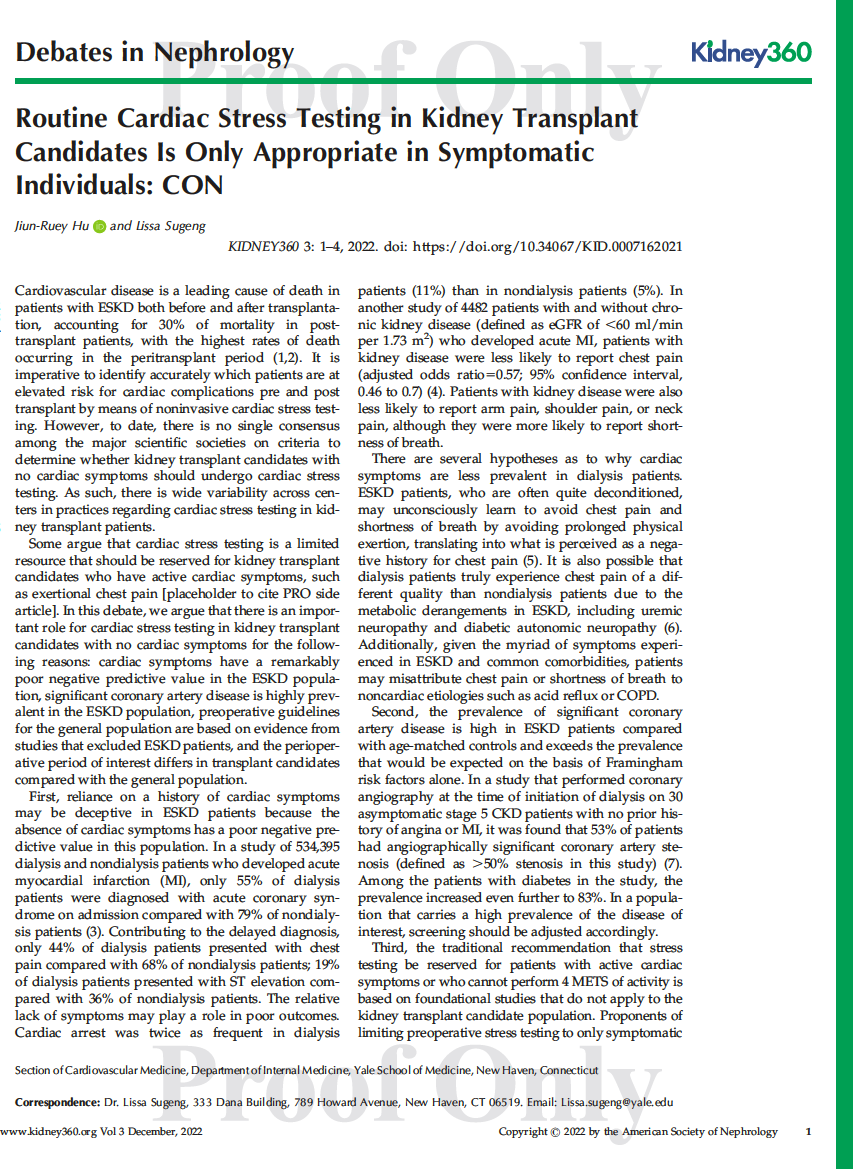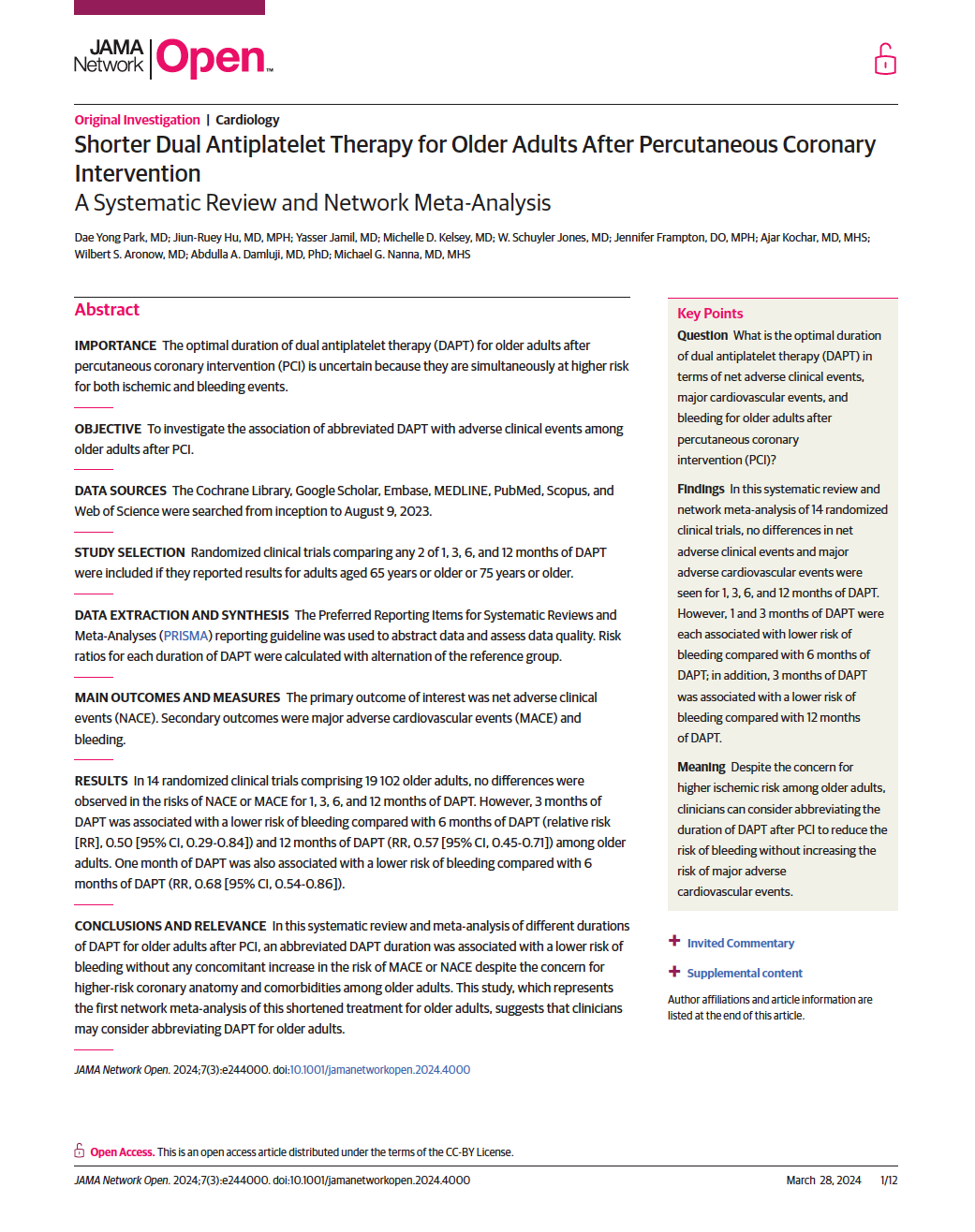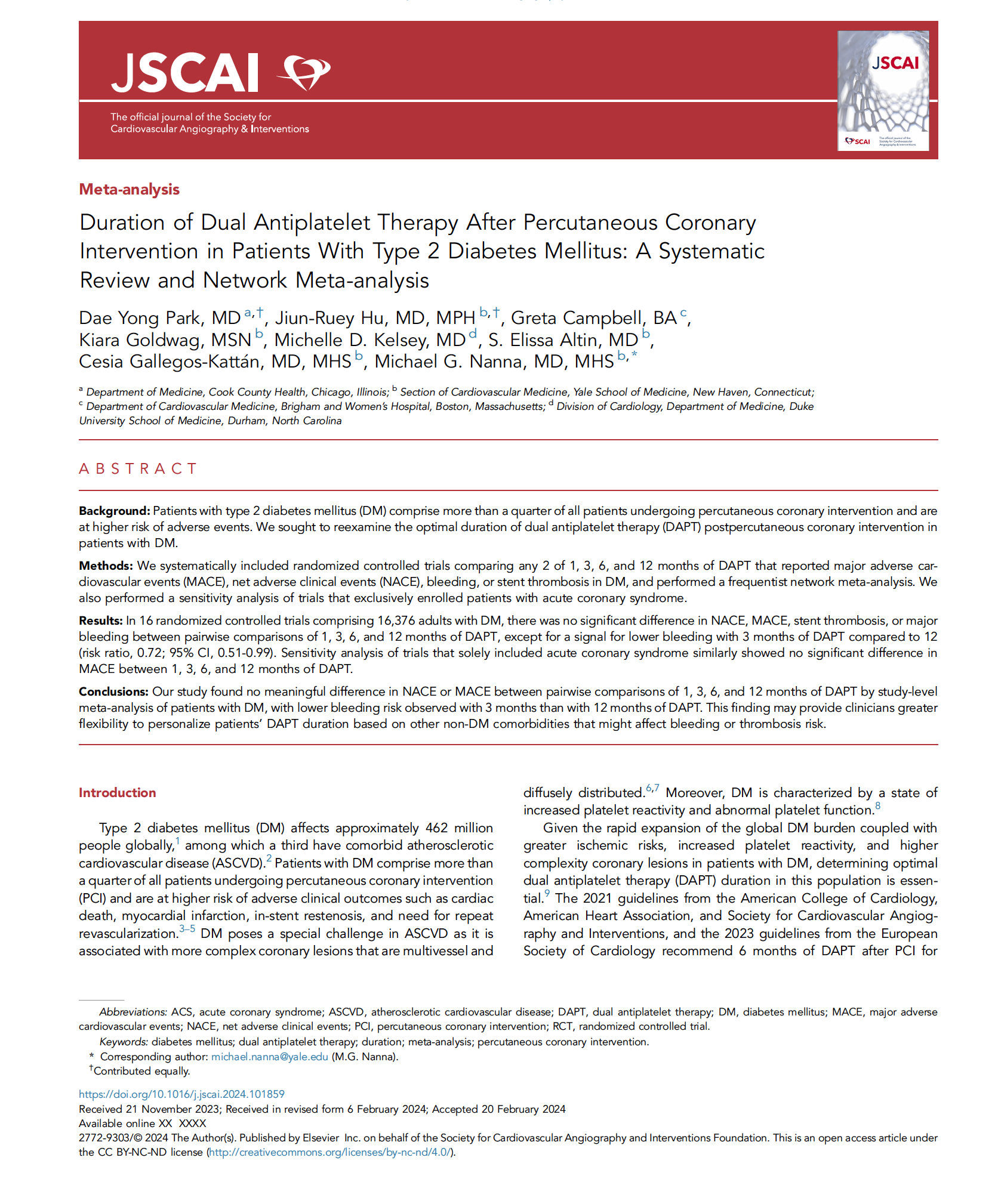
📝 Abstract
Cardiovascular disease is a leading cause of death in patients with ESKD both before and after transplantation, accounting for 30% of mortality in post-transplant patients, with the highest rates of death occurring in the peritransplant period (1,2). It is imperative to identify accurately which patients are at elevated risk for cardiac complications pre- and post-transplant by means of noninvasive cardiac stress testing. However, to date, there is no single consensus among the major medical societies on criteria to determine whether kidney transplant candidates with no cardiac symptoms should undergo cardiac stress testing. As such, there is wide variability across centers in practices regarding cardiac stress testing in kidney transplant patients.
Some argue that cardiac stress testing is a limited resource that should be reserved for kidney transplant candidates who have active cardiac symptoms, such as exertional chest pain or dyspnea. In this Debates in Nephrology article, we argue that there is an important role for cardiac stress testing in kidney transplant candidates with no cardiac symptoms for the following reasons: cardiac symptoms have a remarkably poor negative predictive value in the ESKD population, significant coronary artery disease is highly prevalent in the ESKD population, preoperative guidelines for the general population are based on evidence from studies that excluded ESKD patients, and the perioperative period of interest differs in transplant candidates compared with the general population.

